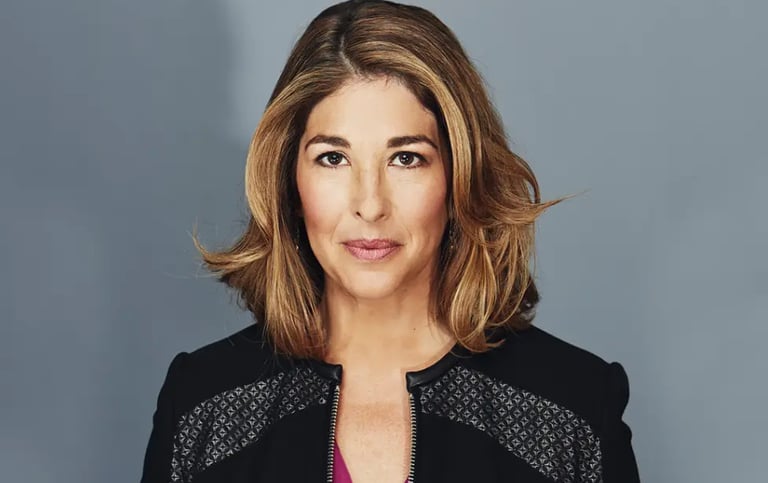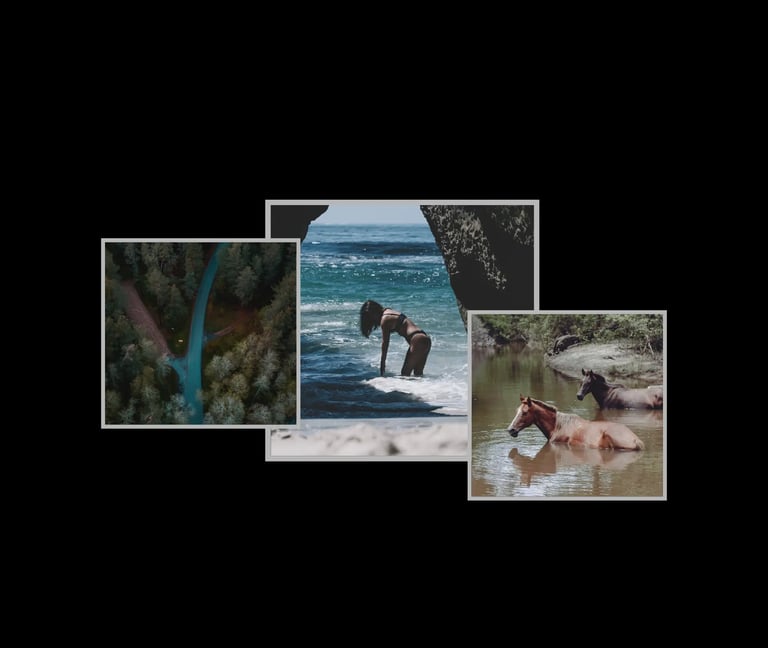Naomi Klein: A Voice for Climate Justice and the Urgency of Now
PEOPLE & STORIES


Few thinkers have shaped the global conversation around climate change, capitalism, and justice as profoundly as Naomi Klein. A journalist, activist, and best-selling author, Klein has spent more than two decades challenging the systems that fuel inequality, environmental destruction, and political instability. Her work is not just analysis—it is a call to action.
Klein’s journey as a public intellectual began with her groundbreaking 1999 book No Logo, a searing critique of brand culture, corporate power, and the commodification of identity. Published at the height of globalisation’s "brand mania," No Logo resonated with a generation disillusioned by multinational dominance and searching for alternatives. It marked Klein as a fierce, independent thinker unafraid to take on entrenched power structures.
Yet it was her work on climate that would become her most enduring and urgent contribution. In This Changes Everything: Capitalism vs. The Climate, Klein drew a stark conclusion that few dared to state so plainly: climate change is not simply an environmental problem, but a political and economic one. Our planetary crisis, she argues, is rooted in an economic model that prioritises endless growth, exploitation, and short-term profit over long-term survival. In Klein’s view, tackling climate change requires nothing less than a fundamental transformation of the systems that govern our lives.
Her ability to link the climate emergency to issues of inequality, colonialism, race, and corporate greed has helped broaden the conversation beyond emissions statistics and temperature goals. For Klein, climate change is not an isolated crisis—it is a symptom of a much larger moral and systemic failure.
Through her writing, speeches, and activism, Naomi Klein has also been an early advocate for the Green New Deal — a visionary framework that seeks to address environmental degradation and economic injustice together. She champions policies that are bold, equitable, and rooted in the understanding that no solution to the climate crisis can succeed without also addressing social inequality.
But Klein’s work does not stop at critique. She places deep faith in collective action, grassroots movements, and the power of ordinary people to demand transformative change. Whether supporting Indigenous land defenders, student climate strikes, or divestment campaigns, she consistently lifts up the voices of those most affected by environmental and economic harm.
Throughout her career, Klein has also never shied away from confronting the emotional dimension of the climate crisis: the grief, the anger, and the profound anxiety that so many feel in the face of escalating disasters and political inaction. Yet she urges us not to be paralysed by despair. Instead, she offers a framework of courageous hope — the idea that while the odds may be daunting, the alternative to fighting for a better future is unthinkable.
More recently, in her book On Fire: The Burning Case for a Green New Deal, Klein sharpened her focus on the crossroads humanity now faces. The fires, floods, and storms that rage around us are not distant threats; they are here. They are now. And they demand a response that is as fierce, systemic, and imaginative as the crises themselves.
Klein’s influence goes far beyond the environmental movement. She has helped reframe the narrative around climate justice, ensuring that conversations about saving the planet are inseparable from conversations about human rights, dignity, and equity. Her work resonates especially with younger generations—Millennials and Gen Z—who are inheriting a world shaped by the failures of previous eras and are demanding a radically different path forward.
Today, Naomi Klein stands as one of the clearest, most uncompromising voices for justice in a fractured world. She refuses the easy comfort of incrementalism, calling instead for a transformational vision rooted in solidarity, courage, and care for both people and planet.
In an age when so much feels uncertain, her message remains steady:
The future is still unwritten — and it belongs to those brave enough to fight for it.


